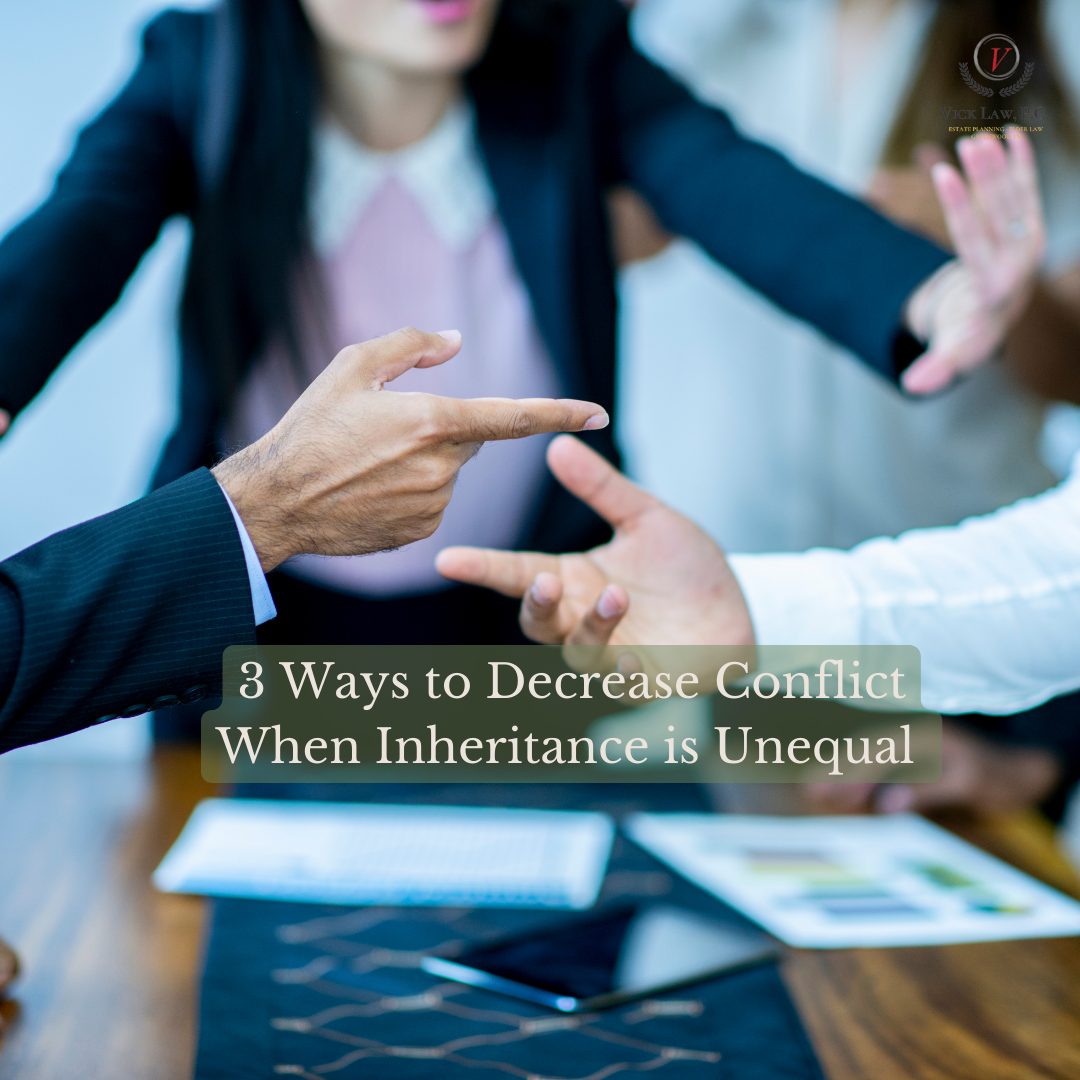One of the cornerstones of estate planning for most families is to leave equal shares of inheritances to ensure fair treatment among siblings. However, equal shares aren’t always fair, especially when circumstances are complicated. In some cases, giving children equal inheritances is the worst option, according to a recent article, “How to avoid potential conflict among your kids when leaving an unequal inheritance” from MarketWatch.
Leaving unequal inheritances can be risky. Many American households report that their future financial stability depends upon receiving an inheritance. Data from the University of Michigan’s Health and Retirement Study reveals that the proportion of parents over 50 who reported treating children unequally in their wills jumped from 16% to nearly 35% between 1995 and 2010.
Why Leave Unequal Inheritance?
When are parents likely to leave unequal inheritances? If one sibling is struggling financially and the other is flush with income and good fortune, it may be the right thing to do. This may also apply if one child has already received a large amount of financial support or has special needs.
One of the most common reasons for leaving unequal inheritances is to address uncompensated caregiving from an adult child. Two-thirds of respondents in a Merrill Lynch and Age Wave study said children who provided care late in life should receive a larger inheritance than those who did not.
No one wants to create tension after their passing. These tips may help prevent conflict between siblings when inheritances are unequal:
- Explain your wishes. Have a family meeting or one-on-one meetings with children to explain your thinking, and if necessary, consider including your estate planning attorney in the discussion. Consider writing a heartfelt, handwritten letter if you’re uncomfortable or the family dynamic is explosive. This may also help you if your will is contested in court, since it will demonstrate your intent.
- Add a deterrent. If you anticipate your family ending up in court over their inheritances, talk with your estate planning attorney about a no-contest clause, which would be inserted in your will. It states that anyone who contests the will forfeits the right to any inheritance. Just be careful—these clauses are not interpreted the same way in every state. Therefore, consult with an experienced estate planning attorney to be sure that your will and your wishes will withstand a court challenge.
- Consider a trust as part of your estate plan. Consider using a trust if your concern is focused on using your assets, as in the case of a spendthrift child or one with addiction issues. Your assets are placed in the trust, and you name a trustee to be in complete control of when and if the assets should be distributed to the named beneficiary. For example, you could set up an educational trust to preserve assets to be used for school costs. In the case of blended families, a trust can also be used to provide funds for a spouse but not children from a prior marriage. Trusts are harder to challenge because they bypass probate and remain private, unlike wills.
The attorney at Vick Law, P.C. will carefully discuss your options with you to help you create the best plan for you and you families needs. Book a call with Vick Law, P.C. today to create or update your estate plan today.
Reference: MarketWatch (May 6, 2023) “How to avoid potential conflict among your kids when leaving an unequal inheritance”

